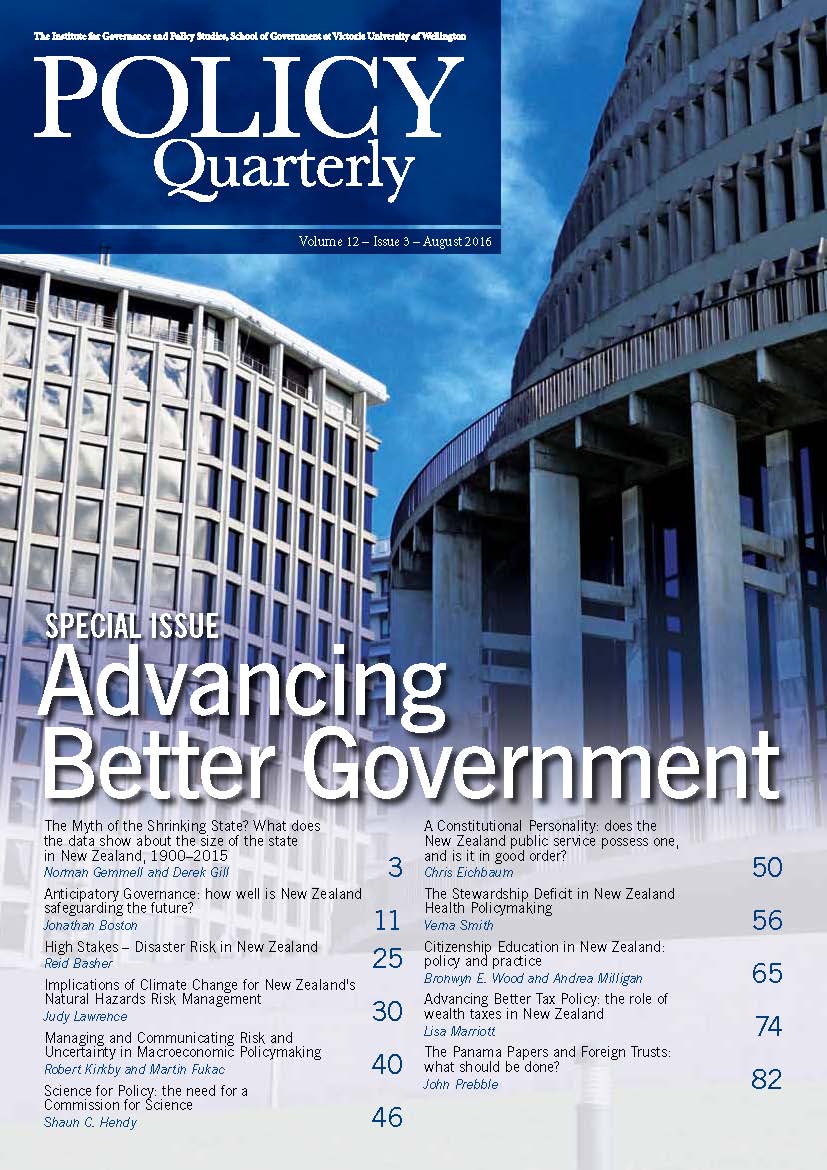The stewardship deficit in New Zealand health policymaking
DOI:
https://doi.org/10.26686/pq.v12i3.4600Keywords:
‘stewardship’ functions, ‘Autonomy’, pay-for-performance schemes, primary health care, Ministry of Health, British Medical Association (BMA), Quality and Outcomes Framework (QOF), single-ownership model, service delivery, Performance Programme (PP)Abstract
The autonomy and capacity of a state to make and implement public policy (or to exercise its ‘stewardship’ functions) (WHO, 2000, p.122) is a fundamental characteristic of statehood. ‘Autonomy’ for a state is defined as ‘the ability of government institutions to resist being captured by interest groups and to act fairly as an arbiter of social conflicts’ (ibid.). ‘Capacity’ refers to the ability of government systems to make and implement policy and ‘springs from the expertise, resources and coherence of the machinery of government’ (Buse, Mays and Walt, 2007, p.81). Understanding the nature of autonomy and capacity in a particular state and how well that state is able to maintain or extend its autonomy or capacity to develop effective public policies is important because this enables states to strengthen these characteristics over time.
Downloads
Downloads
Published
Issue
Section
License
Permission: In the interest of promoting debate and wider dissemination, the IGPS encourages use of all or part of the articles appearing in PQ, where there is no element of commercial gain. Appropriate acknowledgement of both author and source should be made in all cases. Please direct requests for permission to reprint articles from this publication to Policy-Quarterly@vuw.ac.nz.



